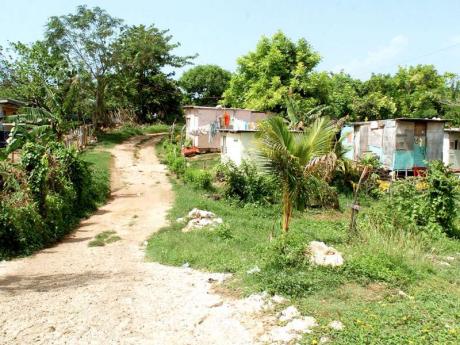The social and economic cost of squatting (Part 2)
Linton Gordon, Guest Columnist
This is the conclusion of an address to the Kiwanis Foundation of Jamaica on September 9.
The Trespass Act, Limitation of Actions Act and The Registration of Titles Act were dealt with by the Supreme Court of Jamaica, the Court of Appeal of Jamaica and the Privy Council in the case of Alrick Pottinger v Traute Raffone.
In that case, Mr Pottinger applied to the Registrar of Titles to be declared the owner of 34 lots of land at Gibraltar Estate in St Mary on the basis that he had been occupying these lots undisturbed for more than 12 years. At Paragraph 32 of the judgment of the Privy Council, the evidence relied on by Mr Pottinger is set out in part as follows:
32. Mr Pottinger's application to the registrar contained a standard form declaration to this effect:
"That I am not aware of any mortgage or encumbrance affecting the said lands or that any other person or persons hath any estate or interest therein at law or in equity in possession reversion or contingency."
There is nothing in the evidence given at trial which would show that this statement was inaccurate, far less fraudulent. Mr Pottinger also made a fuller declaration, inter alia, to this effect:
"2. That I have known the lands, the subject of this application, from the year 1970 when I purchased a house on one of the lots of the subdivision of which the lands the subject of my application form a part and where I have since lived.
3. That the lands the subject of this application are all registered in the name of Gibraltar Estate Investment Company Limited.
4. That Gibraltar Estate Investment Company Limited, a company incorporated in Jamaica, bought Gibraltar Estate and had the property subdivided and sold it out in lots of which the lots, the subject of this application, form the remaining unsold lots.
5. That when I purchased my home as aforesaid, I noticed the lots the subject of my application to be in bush, unoccupied and unattended, which presented an untidy appearance to the whole subdivision and provided a meeting place for thieves, and I used my best endeavours to trace the registered proprietors, but from all information I received, the company had ceased to operate in Jamaica from the early part of the 1960s and had no office in Jamaica, and the owners of the company, William Donnell and his wife, who were both English, had left the island.
6. That in order to protect the value of the holdings in the section of the subdivision that had been sold, including my own lot, in the year 1975, I took possession of the lots the subject of this application, bushed the lots and have since remained in the sole undisputed and undisturbed possession of the said lots and in receipt of the rents and profits thereof and have settled all outstanding taxes on the said lots.
And I make this solemn declaration conscientiously believing the same to be true and by virtue of the Voluntary Declarations Law."
Clearly, when Mr Pottinger first entered on to these lands, he was in breach of the Trespass Act, as he had gone on to lands belonging to another without permission and without authorisation. However, by continuing in breach of the Trespass Act for 12 years or more, he was rewarded with being declared the owner of the 34 lots of land he took possession of, and remained in possession of for more than 12 years.
Irreconcilable conflict
Now, whatever view you might take of the Pottinger case, you have to admit that Pottinger complied with the Limitation of Actions Act and with the Registration of Titles Act. The question we, as Jamaicans, need to ask ourselves is whether the procedure of acquiring lands by adverse possession is causing more harm than good in the development of our country.
There is no doubt that the conflict existing between the Trespass Act, where it is a crime to squat, and the Limitation of Actions Act and the Registration of Titles Act, on the other hand, is irreconcilable. Any law that rewards one who has committed a criminal act with a benefit is bound to create conflict.
I submit, therefore, that one of the first steps towards addressing this vexed issue of squatting is that our Parliament needs to resolve the obvious conflict and confusion existing and, indeed, created by the provisions of the Trespass Act, the Limitation of Actions Act and the Registration of Titles Act. Pending all of this, both political parties should arrive at a consensus that they will cease allowing squatters to capture and take over expensive government property.
It was a bad decision to have allowed squatters to take over prime resort lands in the Mammee Bay area of St Ann. Those lands should have been used for golf courses, condominiums and resort accommodation. What the authorities have done in Mammee Bay with those lands is equivalent to one giving his Rolls Royce to his cousin for him to go and sell peanuts and sugar cane from the trunk of the car in a market street.
Kiwanians are highly respected members of our community, you have a reputation for getting things done and your influence extends into the corridors of Parliament. You need to raise your voices on the matter of squatting. I know you will not approach it in a political way, but you will be objective, fair and balanced. The matter needs our collective attention; you, perhaps, can provide the leadership.
Linton Gordon is an attorney-at-law. Email feedback to columns@gleanerjm.com and lpgordon@cwjamaica.com.

